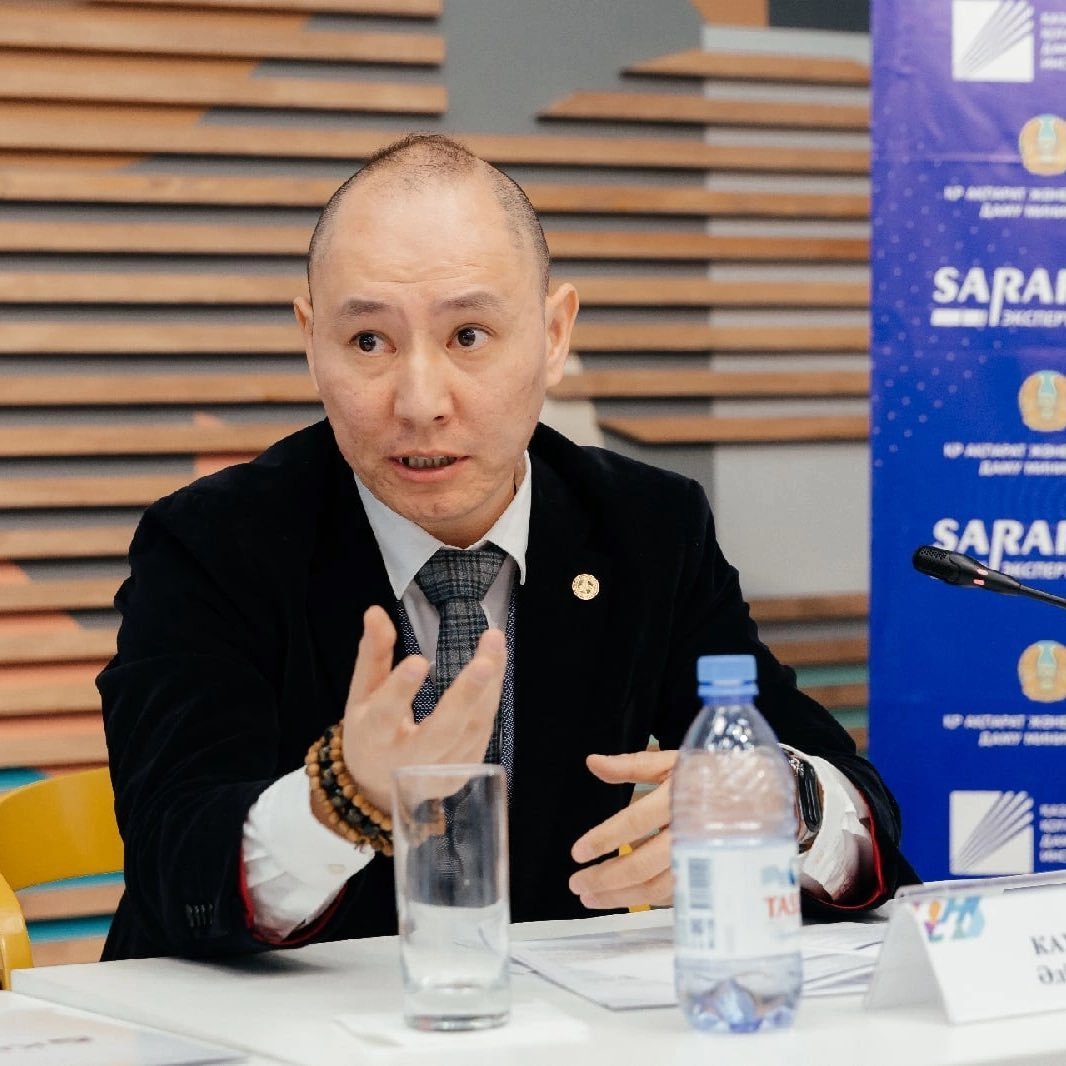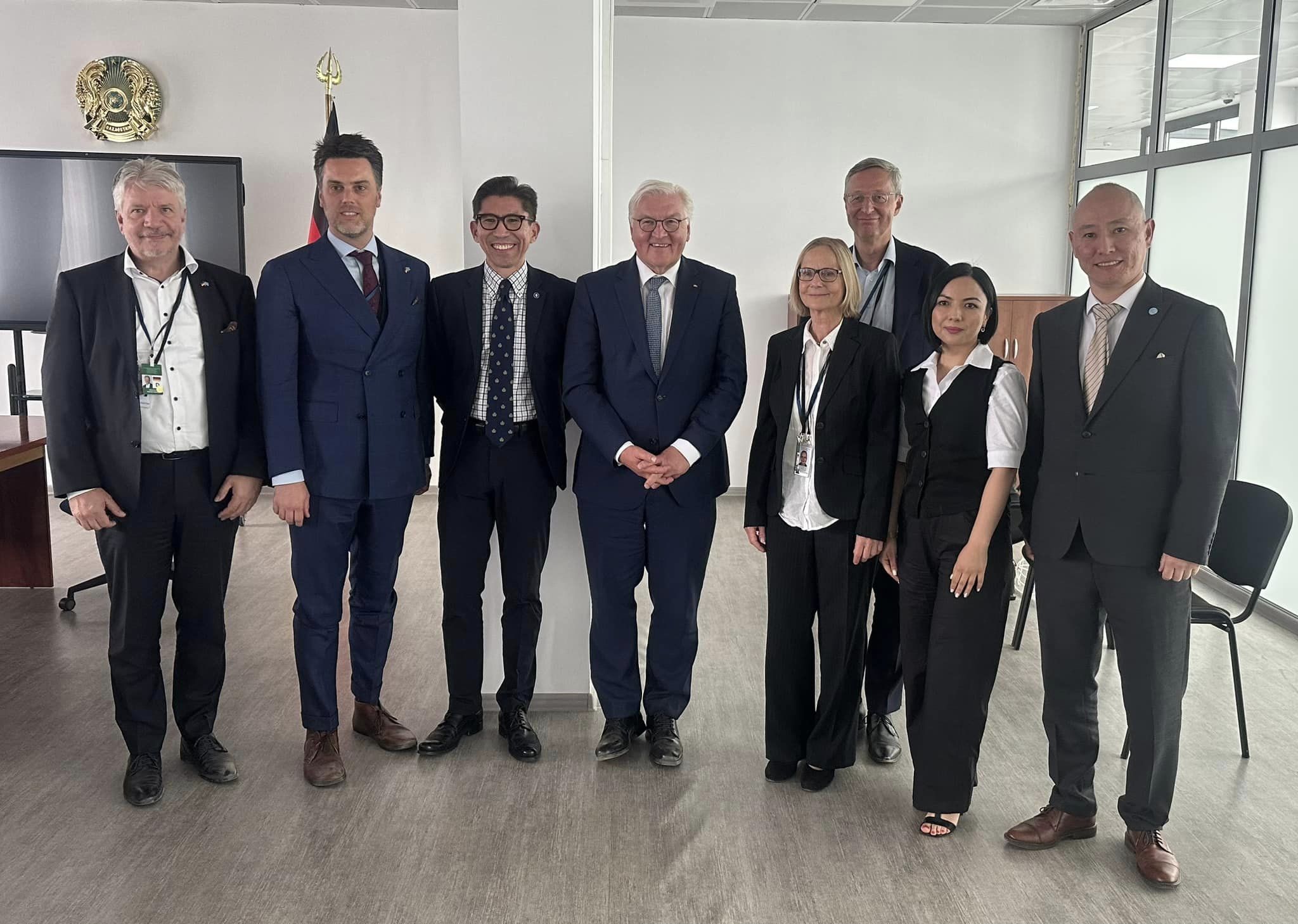ASTANA – Despite complex geopolitical events, the global political and economic system remains quite stable, enabling Kazakhstan to keep pursuing its ambitions and enhancing its role as a bridge between the largest economies of Asia and Europe, Adil Kaukenov, the chief expert at the Kazakhstan Institute for Strategic Studies (KazISS), said in an interview with The Astana Times.

KazISS chief expert Adil Kaukenov. Photo credit: Facebook.
Kaukenov mentioned several trade routes that Kazakhstan is developing to the north and south, while the main one, the Trans-Caspian International Transport Route (TITR) passes through the center. TITR, also known as the Middle Corridor, runs through China, Kazakhstan, the Caspian Sea, Azerbaijan, Georgia, Türkiye, and further to European countries.
“The Middle Corridor is a brand new route. It is not even close to operating to its full capacity yet. That is why it sparks great interest right now,” the expert said.
Kaukenov said there are many disputes related to tariffs and the TITR’s direction between political scientists, logistics experts, and businesses. However, with a well-developed infrastructure, the route keeps progressing rapidly, with big players in Europe and Asia eyeing its great potential.
The expert highlighted that China is optimistic about these processes and ready to support Kazakhstan’s efforts in building new routes and ideas.

Kaukenov personally met with Steinmeier in a small group of experts at the port of Kuryk. Photo credit: Adil Kaukenov/Facebook.
The ports of Aktau and Kuryk on the Caspian Sea are essential in this area, Kaukenov noted. In particular, he pointed out that the Kuryk port has transformed from a place that used to be an empty coast to a modern port utilized for both freight and passenger traffic. With connected railway tracks, the port also covers customs, ticketing, as well as sending and receiving cargo systems.
According to the expert, building new infrastructure and ports is a significant challenge for Kazakhstan and the post-Soviet space, as investors are skeptical about such projects in Central Asia.
“The fact that Kazakhstan manages to create such facilities with its funds and to convince its foreign partners to use this reliable and safe infrastructure is a huge breakthrough,” Kaukenov said.
German Federal President Frank-Walter Steinmeier called the ports “a junction of the Middle Corridor” during his visit to Kazakhstan last month. As noted by the expert, it is not surprising that Steinmeier not only spoke about the project but also met with Prime Minister Alikhan Smailov precisely in the port of Kuryk, which changed the idea and logistics of transport flows in the Caspian Sea, as it offered an entirely new infrastructure in a new place.
Kaukenov suggested that with Germany’s interest, the Kuryk port has a headstart to become one of the significant points on the Caspian Sea and other ports of neighboring countries.
“It is important that our ports manage to compete to use this infrastructure,” he pointed out.
Kaukenov personally met with Steinmeier as part of a small group of experts, noting that it was a great honor to talk with decision-makers and exchange views on current political events and relations between Germany and Kazakhstan.
The expert revealed that Germany is very interested in Kazakhstan’s new routes, which allow the German economy to maintain its links with the Asian continent.
Kaukenov called Steinmeier’s visit a remarkable event, given that visits by persons of this level are quite favorable for Kazakhstan, as they increase recognition and provide more opportunities to attract investment and tourists.
The expert recalled that such visits are also vital for strengthening the position of the Kazakh passport. The government is currently working to simplify the visa policy for Kazakh citizens to visit countries of the European Union.
Kaukenov emphasized that the Kazakh passport is generally powerful, as it provides citizens with visa-free access to many countries, or at least the possibility to obtain a visa on arrival or online.
“Kazakh citizens can easily get a visa in Thailand after 15-20 minutes in the queue. Not every country has this opportunity,” he said.
Kaukenov named European countries, India, Japan, and the United States as the destinations that would strengthen the Kazakh passport if they facilitated the visa process. He noted that if India and Japan enable visa-free travel for Kazakh citizens, they will be able to travel visa-free to most Asian countries.
The expert said complex negotiations are underway with European partners, and progress is being made.
“The only directions left will be the facilitation of the Schengen and American visas,” he concluded.

